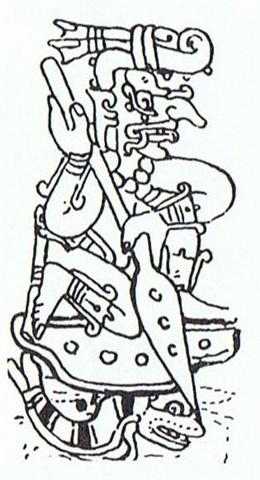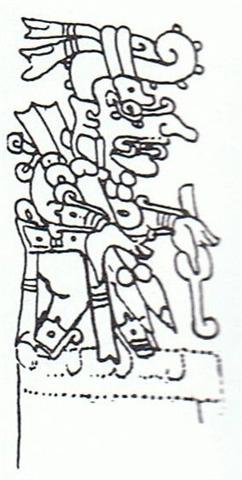1. It is strange to find that Barthel translated
Te Manavai, the first kuhane station of the new land
(we know what that land means now and I do not have to write 'land' in the
sky any more), as the 'side crater' (presumably intending
Rano Kao - ie., Te Poko Uri - to be the main crater):
| They reached the side
crater (te manavai) and looked around
carefully. |
he tuku ki
te manavai
hee rarama. |
| Makoi said, 'This
is the Manavai of Hau Maka.' |
he ki a Makoi.ko
te
manavai a hau maka |
| They climbed farther and
reached the top. |
he iri he oho he tuu
ki runga |
| They saw the dark abyss
and the large hole (of the crater Rano Kau). |
he ui i
te poko uri |
| They all said, 'Here it
is, young men, the dark abyss of Hau Maka.' |
he tikea te pakonga he
ki anake i ana nei e kau a repa e a
te poko uri a hau
maka. |
| They made camp and
constructed a house. |
he noho o(i)ra he
hakatuu i te hare. |
|
Around
Rano Kau |
|
Old Land |
Te Pu Mahore |
Te Poko Uri |
|
New Land |
Te Manavai |
Te
Kioe Uri |
Judging from its name the side crater should
rather be Rano Kao
and not Te Manavai:
| Kao
1. Side, edge, rim; kao gutu (or just
kao), labia minora. 2. Steep, almost perpendicular;
thin, skinny. Motu Kaokao, name of one of the islets
opposite Orongo, with a steep shape.
Cloth, clothing, garb. (Perhaps a variant
of kahu.) Kaokao, side, flank, ribs, lateral.
P Pau.: kaokao, the side, flank. Mgv.: kaokao,
the side, flank. Mq.: kaokao, id. Ta.: aoáo,
id. In Nuclear Polynesia this is particularized, in Samoa to
the armpit, in Tonga and Futuna to the sides of the canoe.
Therefore it may be considered a borrowing from the
Tongafiti. |
When Fakataka reached another land she stayed
on the upraised reef in the freshwater pools and there delivered
her boy child. That was the first station of the new land, a place
very close to the sea yet containing sweet water (vai).
Accordingly we can guess Te Manavai
also to be a place close to the sea and with
fresh water:
| Manavai
Hollow where rainwater accumulates;
anciently, small, round gardens, preferably situated in
low shady spots, where the mahute tree was grown.
1. Brain. 2. Valley, ravine, river,
torrent, brook; manavai miro, orchard, Mq.:
manavai, valley, brook. Ta.: anavai, river,
brook. It scarcely appears that these are fully
coordinate. In Tahiti anavai has a clear
etymology, ana meaning the bed of a stream. In
Rapanui and in the Marquesas mana most readily
associates with maga, as water in a forked bed. |
| Maga
Branch (of tree). Magahaiga,
part of the arm near the armpit, armpit. Magamaga:
1. Finger (rima matu'a neanea, thumb; tuhi
henua, index finger; roaroa tahaga,
middle finger; tuhia háûa, ring finger;
komaniri-komanara, little finger). 2. Seaweed
(shaped like small fingers).
1. (mama 2) A mouthful;
maga nuinui, to gobble. 2. Garbage. 3. Index
finger. 4. A branch; magamiro, a branch, a
limb; magamaga, fork, finger, claw, rod;
magamaga miro, a branch, a limb;
magamaga rima, finger; magamaga vae, toe;
magamaga tumu, great toe; hakamaga, a
roof; magaga, fork; magatuhi, index
finger; hakamagaturu, slope of a roof. |
Confirmation of my suggestion, of
Te Manavai being in principle the same place as that where Fakataka
stayed after she had crossed the sea, is given by mana
→ maga = branch, limb, finger.
Because the Golden Plover induced her to name the neck, elbow, and
knee (i.e. the joints of the limbs) of her baby boy after the name of
the Rain Bird:
... When the baby is born a golden plover flies over
and alights upon the reef.
(Kua fanau lā te pepe kae lele mai te tuli oi tū mai i te
papa). And
so the woman thus names various parts of the child beginning
with the name 'the plover' (tuli): neck (tuliulu),
elbow (tulilima), knee (tulivae) ...
|
Turi
Knuckle; turi-rima, elbow;
turi-va'e ankle (also just turi).
1. Knee. P Pau., Mgv., Ta.: turi,
id. Mq.: tui, to bend. Turirima, elbow;
turituku, to fall on the knee; turituri,
dorsal fin G. Turituririma, elbow joint.
Turiturivae, knee joint. Turivare, abscess at
the knee. Mgv.: turikopia, to walk with knees
turned in and legs apart. Ta.: turiopa, weakness
of the knees. 2. Pau.: turituri, noise, hubbub.
Ta.: turituri, stunned with din. Mq.: tuitui,
be still! Ma.: turituri, noise, uproar. 3. Ta.:
turi, deaf. Mq.: tui, id. Sa.: tuli,
id. Ma.: turi, id. 4. Golden plover (rain bird), Tok. |
The Rain Bird (Golden Plover, Tuli) is Sun in
his aspect of rain creator, and the joints between the hard limbs
are like rain periods, enabling movement because rain works like a
lubricant.
The Rain God is first going by canoe across the sea
and then he is hovering in midair just like the Golden Plover:
 
|

